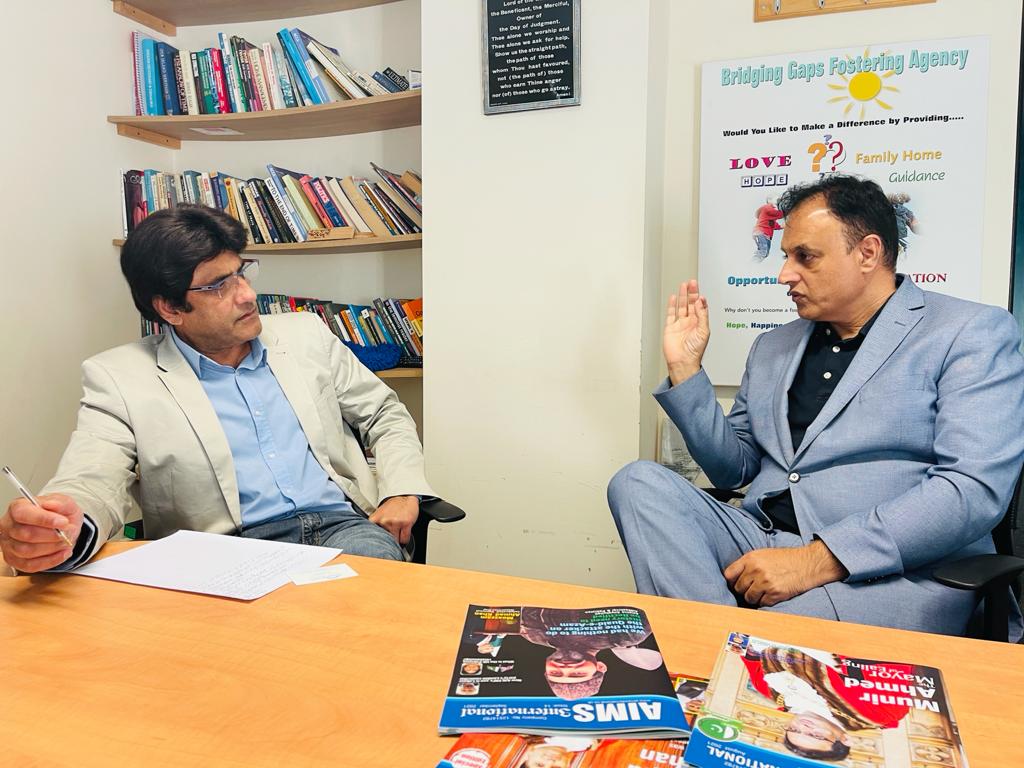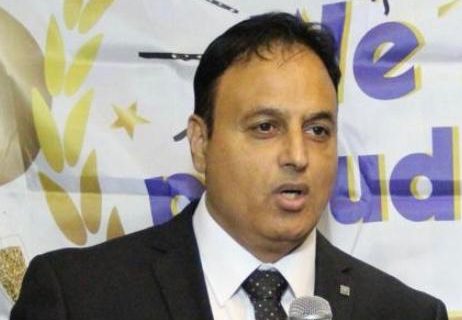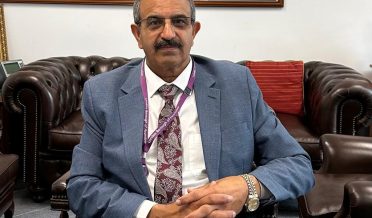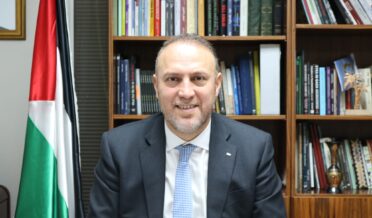Interview/
Wajahat Ali Khan
“Bridging Gaps”
says finance director & renowned entrepreneur and political activist Muhammad Raja Zahid
Bridging Gaps” is a prominent fostering agency and its head office is in Slough, which is a large town in Berkshire, England, twenty miles west of central London and Mr Muhammad Zahid Raja is a famous entrepreneur in the town and the finance director of the Bridging Gaps “Aims international” had the opportunity to interview him at the agency’s head 0ffice. Mr Raja elaborate that we have been running foster agency since 2009 and we are registered with “office for standards in education children’s services and skills” Ofsted is a government regulatory authority in this field and now with combined social work experience amounting to over 11 years. Bridging Gaps has successfully expanded since then, we humbly can say that we are (Pride Fostering Services). To date we have more than 60 staffers available throughout the area providing foster care to many children. Bridging Gaps has secured several contracts and is the preferred provider for the majority of Slough and the surrounding areas Local Authorities. We have a dedicated staff team with extensive social work experience within the fostering sector throughout the organisation right up to the Directors.
Mr M Zahid Raja said it takes six months to build a foster carer and after that when they approved like their DBS check etc, when a child referred to us by the authorities, we make suitable matching that the child goes to the same community he belongs to. We also maintain the regulations which the government has decided in this regard. For example,
the government sets the rules and regulations for foster care in the UK. Local authorities and fostering agencies implement the rules and regulations, which govern the assessment, training, and monitoring of foster care.
The concept of fostering a child is universal and the essence of it is that the carer assumes the parental role. The length of the role is often not predetermined. It can be an emergency or short-term arrangement that lasts for a day or a week or it can be a long term or permanent arrangement that lasts until the child or young person reaches eighteen, that’s why we take children from zero to eighteen years old, Mr Raja has said. What begins as a short-term arrangement may become a long-term arrangement. There are different types of fostering such as respite care and remand care. Respite care provides a break for biological parents or foster carers when the child has demanding special needs or behavioural issues or simply when they need a holiday or break. Remand foster care is specific to England and Wales, which allows courts to remand young people to foster care rather than to secure units.
While local authorities have typically been in charge of placements, over the past twenty-five years or so, independent fostering agencies have developed as conduits between foster carers and children and young people in care. Local authorities frequently decide with fostering agencies, which tend to have more dedicated resources for assessing and maintaining foster parents. The Office for Standards in Education, Children’s Services and Skills (Ofsted) regulates independent fostering agencies as part of its mandate to achieve excellence in the care of children and young people. Independent fostering agency providers and managers are required to register with Ofsted. This provides protection and assurance to local authorities when they outsource fostering responsibilities to independent agencies. Because it is not legal for an independent fostering agency to operate without registration with Ofsted, the foster care system is given a guarantee that ensures that the system is properly maintained.
Muhammad Zahid Raja said we primarily help bridge the gap between children and families, but it is also important to note that because of family’s issues authorities take children from parents and give them to foster parents, but if the issues between the families disappear, the children are return to them. He explains that “Bridging the Gaps” is a company, apparently, we are entrepreneur and running a business but this is also the service of humanity, which we strongly believe so and considering it as a good deed because good deeds should be done with intention.
Mr Raja Zahid is also recognized as an enthusiast political activist and belongs to Pakistan Tehreek e Insaf’s UK wing. He served as a chief organiser for the southeast area, Pti locals often says that Raja Zahid should be hold the post of Minister or adviser in the Azad Kasmir’s assembly so that overseas Kashmiris can take advantage of his abilities. Mr Raja thinks that Pti UK president Rana Abdul Star is doing good job for the party. Raja believes in PM Imran Khan’s leadership and he is very much optimistic that Imran Khan will succeed in getting Pakistan out of the mess, despite the fact that he got the country which was in debt and destroyed due to corruption. He said we have to be optimistic and support Imran Khan.

Fostering statistics in United Kingdom
Over 65,000 children live with almost 55,000 foster families across the UK each day. This is nearly 80 per cent of the 83,000 children in care away from home on any one day in the UK. Every year thousands of new foster families are needed. The statistics below provide a picture of the care system on just one day of the year. Around 30,000 more children come into care over the course of 12 months, with similar numbers leaving the care system to return home, move in with another family member, live with new adoptive families, become subject to a special guardianship or residence order or move on to adult life.
England
57,380 children were living with foster families on 31 March 2020.
This is 72 per cent of the 80,080 children in care looked after away from home.
There are around 44,500 foster families in England.
Every year thousands of new foster families are needed in England.
Northern Ireland
2,673 children were living with foster families on 31 March 2020.
This is 79 per cent of the 3,383 children in care looked after away from home.
There are approximately 2,800 foster families in Northern Ireland, and there is always a need for more foster families.
Scotland
Approx. 4,750 children were living with foster families on 31 July 2020.
This is roughly three-quarters of children in care looked after away from home and family.
There are approximately 3,620 approved foster care households in Scotland.
Every year hundreds of new foster families are needed in Scotland.
Wales
4,990 children were living with foster families on 31 March 2020.
This is 70 per cent of the 7,170 children in care looked after away from home.
There are approximately 3,700 foster families in Wales.
Every year hundreds of new foster families are needed in Wales.







